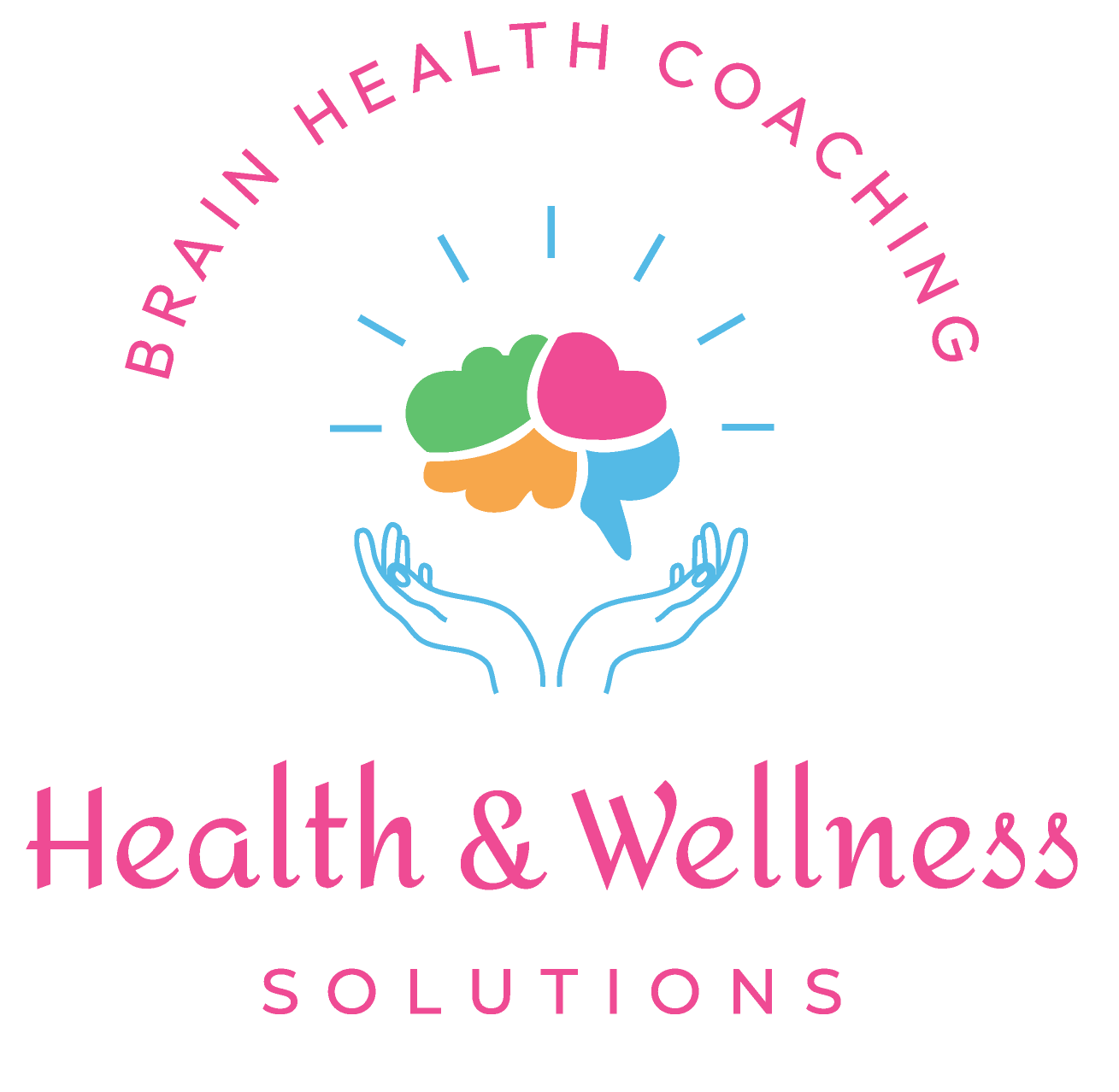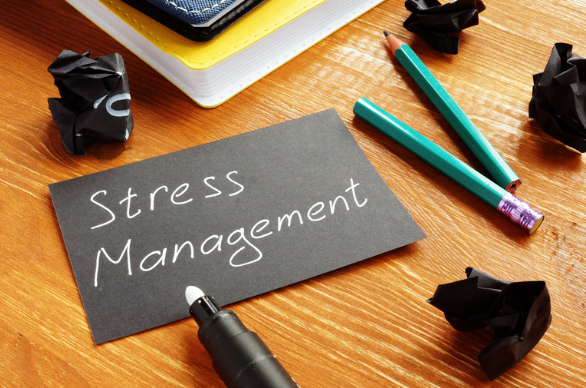Is this your life? Juggling important work deadlines, planning a family celebration like a child’s graduation or a parent’s milestone birthday, trying to maintain a work-life balance and taking care of your own health and wellness– all at once.
These are just a few scenarios where stress, a subtle yet powerful force, creeps into the lives of women between the ages of 45 and 70.
As you strive to balance the insane amount of tiny details between work and your personal life, stress can become an uninvited guest, clouding your mind and leading to a sense of unfulfillment and dissatisfaction which impacts your overall happiness and well-being.
Names, dates, and details might slip your mind more often than they used to, not merely due to forgetfulness but as a sign of the stress that’s weighing heavily on your brain health.
You’re not alone in this battle. Many women in your age group find that as stress is mounting, brain function is tanking. At first it’s kind of funny . . . until it’s not. However, there’s a silver lining. It’s not actually all downhill from here.
By understanding and managing stress, you unlock the door to a clearer mind and a more vibrant life. So, let’s explore how to manage stress so that your cognitive health flourishes and you feel like your younger self.
Understanding Stress and Its Impact on Brain Health
Stress – it’s a word we hear often, but what does it truly mean, especially for your brain health?
Biologically, stress is the body’s reaction to any change that requires an adjustment or response. The body reacts to these changes with physical, mental, and emotional responses.
When you’re stressed, your body thinks it’s under attack and switches to ‘fight or flight’ mode, releasing a complex mix of hormones and chemicals such as adrenaline, cortisol, and norepinephrine to prepare the body for physical action.
While this response is vital in short bursts, the kind of chronic stress that we all live under these days is detrimental, particularly to brainhealth. Chronic stress can shrink the area of the brain responsible for memory and learning, the prefrontal cortex.
You might recognize this as memory lapses, difficulty concentrating, or a feeling of constant mental fog.
Stress disrupts sleep, another crucial factor for cognitive function, leading to a vicious cycle of more stress and cognitive decline.
However, it’s not all doom and gloom. The brain is remarkably adaptable and responsive to positive lifestyle changes.
By understanding the enemy – in this case, stress – and learning how to effectively manage it, you can diminish its effects on your brain health.
Let’s look at some stress triggers and some practical strategies to conquer them.
Identifying Your Stress Triggers
Identifying the sources of your stress is like drawing a map through the maze of your life’s challenges. Beyond the obvious stressors like work deadlines and family commitments, there are often subtler, more pervasive triggers.
It could be a fear of not meeting societal expectations, the pressure of maintaining social connections, or anxiety about health and aging. Even positive changes, like a promotion or a child’s wedding, can bring unexpected stress.
The solution is simple! Start a stress diary. For a couple of weeks, jot down moments when you feel stressed. Include details like the time, what you were doing, who you were with, and how you felt both physically and emotionally.
Reflect on these entries to find patterns. Is your stress mainly work-related, or does it stem from personal relationships? Do you feel more stressed in the mornings or evenings? Recognizing these patterns is the first step toward managing them.
Consider, too, the role of digital stressors. In today’s connected world, constant emails, social media notifications, and the pressure to stay digitally engaged can be overwhelming.
Setting boundaries with technology can be a crucial step in reducing stress. Designate tech-free times in your day, especially before bedtime, to allow your mind to unwind and escape the digital chatter.
Lifestyle Adjustments for Stress Reduction
Your lifestyle plays a significant role in how you experience and handle stress. Small, consistent changes can have a large impact on your overall well-being.
Diet: A balanced diet does more than nourish the body; it also nurtures the mind.
Consider incorporating foods known for their stress-reducing properties. Green tea, for instance, contains theanine, which promotes relaxation.
Dark chocolate, in moderation, can reduce stress hormones like cortisol.
Even the simple act of staying hydrated by drinking enough water can keep stress levels in check.
Exercise: The benefits of exercise extend far beyond physical health. It’s also a potent stress reliever. It doesn’t have to be intense or time-consuming.
Activities like gardening, dancing, or even a leisurely bike ride can elevate your mood and clear your mind.
The key is consistency. Aim for at least 30 minutes of moderate exercise most days of the week.
Find an activity you enjoy so it becomes a cherished part of your routine rather than a chore.
Sleep: Quality sleep is a cornerstone of stress management.
Create a sleep environment that promotes relaxation – cool, dark, and quiet.
Consider a pre-sleep routine that might include reading, a warm bath, or light stretches.
Avoid heavy meals, caffeine, and screens at least an hour before bed. If sleep remains elusive, explore techniques like progressive muscle relaxation or guided imagery to help coax your body into sleep.
Mindfulness and Relaxation Techniques
Mindfulness and relaxation are not just practices but a way of being that can transform your relationship with stress.
Meditation: If you’re new to meditation, start with guided sessions, available through apps or online. Focus on your breath and try to bring your attention back gently when your mind wanders. As little as five minutes a day can make a significant difference.
Deep Breathing: Deep breathing is one of the best ways to lower stress in the body. This is because when you breathe deeply, it sends a message to your brain to calm down and relax. The brain then sends this message to your body.
Learn different breathing techniques. For example, the 4-7-8 technique, where you inhale for 4 seconds, hold the breath for 7 seconds, and exhale for 8 seconds, can be particularly effective in calming the nervous system.
Yoga: Explore different styles of yoga. Hatha yoga is gentle and slow-paced, ideal for beginners, whereas Vinyasa is more dynamic. Yoga not only reduces stress but also improves flexibility, strength, and balance.
Seeking Support: The Role of Community and Professional Help
Building a support network is essential in managing stress. Friends and family can offer practical help and emotional support.
Community groups, whether based on hobbies, fitness, or shared experiences, can provide a sense of belonging and an outlet for stress.
Professional help is also invaluable. A therapist can offer coping strategies tailored to your specific needs.
Brain Health Coach:
You’re not wrong: It can be overwhelming to know where to start, and if you’re already foggy . . . you’ll probably close this tab and just hope for a decent couple hours’ rest tonight.
That’s exactly why I created the Brain Boost Blueprint Coaching Program. You can keep throwing spaghetti at the wall, getting more and more discouraged until you decide this is just a part of aging and raise the white flag . . .
Or you can connect with a brain health coach and skip straight to the part where your peers are saying, “Can I have what she’s having?”
As a Brain Health Coach, and utilizing my “Brain Boost Blueprint Coaching Program,” I specialize in addressing the unique challenges you face, providing personalized strategies to manage stress and enhance cognitive function. Most importantly, I create a brain health recovery strategy that is completely unique to you, your lifestyle and what you can handle right now.
Conclusion
Confronting and managing stress is your pathway to a more fulfilling, vibrant life.
Remember, it’s not about eliminating stress entirely – that’s an unrealistic goal – but about
learning to manage it in a way that it no longer controls you.
Embrace these strategies, and observe as they bring about a transformation in your cognitive health and overall well-being. You have the power!
Ready to take the next step? Together, let’s embark on a journey towards a stress-free, vibrant life.

Eileen Allosso, a Nurse Practitioner and Clinical Neurology Specialist, offers Brain Health Coaching that transcends traditional approaches. She empowers women aged 45 to 70 to overcome brain fog, memory lapses and other cognitive issues through tailored, holistic methods. With Eileen, embark on a journey that leads you to your desired goals of feeling like your younger self again, conquering fears around growing older, and aging vibrantly!

